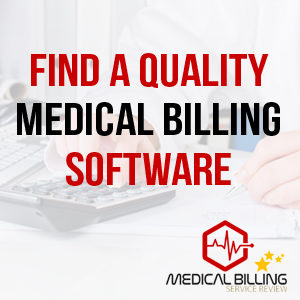
Keeping Up with Healthcare Regulations: A Checklist for Medical Practices
The healthcare industry is rife with regulations. From patient care standards to billing procedures, medical practices are required to comply with a vast array of rules and guidelines. These regulations aim to ensure that patients receive the highest standard of care while also safeguarding their private information. Moreover, adherence to these norms is critical to guarantee smooth billing processes and avoid costly penalties. Given the intricate nature of these rules, it’s paramount for medical practices to stay updated and ensure that their operations align with current regulations.
Understanding the Significance of Healthcare Regulation Compliance
Patient Trust & Reputation: Compliance isn’t just about avoiding penalties. It’s also about building and maintaining the trust of your patients. Adhering to regulations signals to your patients that you prioritize their wellbeing and the confidentiality of their data.
Financial Implications: Non-compliance can lead to hefty fines, especially in areas like data protection. By adhering to rules, practices can avoid these unnecessary costs and potential legal challenges.
Operational Efficiency: Staying compliant often means that the practice is running efficiently. A streamlined billing process that follows regulations ensures fewer claim denials and smoother cash flow.
The healthcare landscape is one of the most intricate sectors in any nation, given its direct impact on human lives. As such, compliance with healthcare regulations isn’t just a legal obligation but a moral one. Delving deeper into the importance of compliance reveals a tapestry of interconnected benefits that cater to various stakeholders, from patients to providers to the larger community.

Ensuring Patient Safety and Quality of Care
At the core of healthcare regulations is the intent to guarantee safety and top-tier care for every patient. By setting minimum standards for treatment, facilities, and practices, regulations ensure that patients receive care that meets consistent quality benchmarks. This means reduced errors, misdiagnoses, and other medical oversights that could compromise patient well-being.
Upholding Ethical Standards
Healthcare, by its very nature, grapples with a myriad of ethical concerns, from patient confidentiality to the right to informed consent. Compliance ensures that medical practices are not just lawful but also ethical. This creates a framework within which medical professionals can operate with clear moral guidance, promoting trust and transparency.
Financial Health of Medical Practices
Regulatory compliance directly affects the financial health of medical establishments. Non-compliance can result in hefty penalties, litigation costs, and even loss of licenses in severe cases. Beyond these immediate repercussions, repeated non-compliance can lead to increased insurance premiums and reduced reimbursements. Over time, this can strain the resources of a medical practice, impeding its ability to offer quality care.
Enhancing Reputation and Patient Trust
In today’s digital age, the reputation of a healthcare provider can be made or broken with a few online reviews. Patients are more informed and discerning than ever, often researching medical practices before selecting a healthcare provider. Practices that uphold and even exceed regulatory standards are viewed more favorably, leading to better online reviews, word-of-mouth referrals, and overall patient trust.
Facilitating Innovation and Research
Healthcare is a constantly evolving field, with new treatment methods, drugs, and technologies emerging regularly. Regulations provide a structured environment in which clinical trials can be conducted, new methodologies can be tested, and innovations can be safely integrated into mainstream practice.
Preparing for Future Challenges
The world of healthcare is not static. With the advent of new diseases, changing demographics, and technological advancements, challenges are always on the horizon. Compliance ensures that medical practices are not just responding to current needs but are also prepared for future challenges. This forward-thinking approach ensures longevity and relevance in an ever-evolving industry.
Regulatory compliance in healthcare is a compass that guides medical practices towards excellence, innovation, and sustained growth. While the path may seem strenuous, the rewards in terms of patient trust, professional satisfaction, and business success are profound.
Essential Healthcare Regulations: A Handy Checklist
- HIPAA (Health Insurance Portability and Accountability Act): Perhaps the most well-known regulation, HIPAA governs patient health information’s confidentiality. Practices must ensure that patient data is secure and only shared with authorized individuals.
- MACRA (Medicare Access and CHIP Reauthorization Act): This act shifts the focus from service volume to service quality, affecting how practices are reimbursed for Medicare patients.
- ACA (Affordable Care Act) Compliance: While mainly known for changing health insurance, ACA also brought about changes in care delivery, which directly impacts billing processes.
- ICD-10 Adoption: ICD-10 is a system used for coding diseases. Since its adoption is mandated, ensuring that your practice uses the correct codes is essential to avoid claim denials.
- HITECH (Health Information Technology for Economic and Clinical Health) Act: This encourages the adoption of electronic health records (EHR) and improves the privacy and security provisions of HIPAA.
- PQRS (Physician Quality Reporting System): This is an initiative by Medicare to identify and reward high-quality care providers.
- Stark Law & Anti-Kickback Statute: These regulations prevent practices from making referrals where there might be a conflict of interest, ensuring that patient care isn’t compromised by external motivations.

Continuous Training & Updates
With regulations constantly evolving, continuous training for your staff is a must. This not only includes physicians but also administrative and billing personnel. Regular workshops, seminars, and training sessions can help in keeping everyone updated.
Ensuring that every member of a medical practice is up-to-date with the latest standards goes beyond mere compliance; it is about safeguarding the reputation, efficiency, and overall success of the institution. Here’s why continuous training on healthcare regulations is so pivotal:
Adapting to the Evolving Regulatory Landscape
Healthcare regulations are not set in stone. As medical knowledge expands and as the healthcare system faces new challenges, rules and standards get adjusted. Without regular training, there’s a risk that employees might continue to operate under outdated practices, leading to unintentional non-compliance.
Ensuring Consistent Patient Care
With everyone on the same page regarding current best practices and standards, patients receive consistent care regardless of which healthcare professional they interact with. This uniformity in service not only builds patient trust but also minimizes errors that can arise from outdated or inconsistent practices.
Mitigating Legal and Financial Risks
Ignorance is rarely accepted as an excuse in regulatory non-compliance cases. Ensuring that all staff members are well-informed reduces the risk of costly legal battles, penalties, or sanctions against the practice. Furthermore, well-trained staff can identify and rectify potential compliance issues before they escalate.
Enhancing Employee Confidence and Morale
When employees know that they are equipped with the latest knowledge, it boosts their confidence. They can carry out their duties with the assurance that they are providing the best possible care and are in line with current standards. This not only elevates the quality of service but also fosters a positive workplace culture.
Facilitating Effective Communication with Patients
A well-informed healthcare professional can communicate more effectively with patients, explaining procedures, rights, and care plans with clarity. This enhances the patient-practitioner relationship, leading to better patient outcomes and satisfaction.
Preparing for Audits and Reviews
Regular inspections, audits, or reviews by regulatory bodies are commonplace in the healthcare industry. Continuous training ensures that a practice is always “audit-ready,” reducing the stress and scramble that often precedes such events.
Fostering a Culture of Continuous Improvement
By investing in continuous training, medical practices signal their commitment to excellence and continuous improvement. This creates an environment where learning and growth are integral, attracting talent and fostering a culture of proactive adaptation.
Continuous training on regulations is not just about ticking a compliance box. It’s about ensuring that a medical practice remains at the forefront of patient care, mitigates potential risks, and thrives in an ever-changing healthcare environment. By embracing a culture of ongoing learning, healthcare practices not only uphold their duty to their patients but also to their employees and the broader community they serve.

Seeking Expert Assistance
Given the complexity of healthcare regulations, many practices choose to seek assistance from experts specializing in healthcare compliance. This can prove to be a wise investment, ensuring that all bases are covered and the practice is consistently operating within the confines of the law.
Understanding the Risks of Potential Healthcare Regulation Violations
When healthcare practices don’t prioritize compliance with regulations, the consequences can be substantial, both in tangible and intangible terms. Delving deeper into the risks associated with healthcare regulation violations provides a clearer picture of the importance of maintaining compliance.
Financial Penalties and Fines
- One of the immediate and most tangible consequences of non-compliance is the imposition of financial penalties. These fines can range from modest amounts for minor infringements to substantial sums for more egregious violations.
- For some medical practices, especially smaller ones, hefty fines can have a significant impact on their financial health.
Legal Repercussions
- Beyond fines, regulatory bodies can take legal action against non-compliant healthcare providers.
- Such actions can result in lawsuits, which not only bring about the potential for more financial penalties but can also consume valuable time and resources, diverting attention away from patient care.
Reputational Damage
- In the age of digital communication and online reviews, word travels fast. Any incidents of regulatory violations can quickly tarnish the reputation of a healthcare provider.
- Restoring a damaged reputation can be a lengthy, challenging, and often expensive process. A single violation can lead to a loss of trust that takes years to rebuild.
Operational Disruptions
- Addressing regulatory violations often requires significant changes to operational procedures.
- This can disrupt the regular flow of patient care and can lead to inefficiencies, backlogs, and increased wait times.
- In severe cases, a regulatory body may even mandate the temporary closure of the practice until compliance is achieved.
Loss of Licensing and Accreditation
- Extreme violations or a pattern of non-compliance can lead to a practice losing its license to operate.
- Additionally, various accrediting organizations may revoke their endorsements, further eroding trust and the ability of the practice to function.
Decreased Patient Trust
- Patients trust healthcare providers with their well-being. Any lapse in regulatory compliance, especially those that compromise patient safety or privacy, can erode this trust.
- Once lost, it can be challenging to regain, leading to a potential decrease in patient numbers and overall revenue.
Increased Insurance Premiums
- Medical malpractice insurance providers often assess the risk profile of a healthcare practice.
- Repeated regulatory violations can be seen as indicators of higher risk, leading to increased premium costs. Over time, these increased costs can strain the financial resources of the practice.
Morale and Employee Retention
- Employees prefer to work in compliant, well-regarded, and stable environments. Regular violations can lead to decreased morale among staff.
- Over time, this can result in higher turnover rates, with professionals choosing to leave for more compliant and reputable institutions.
The risks associated with healthcare regulation violations are multifaceted, affecting almost every aspect of a medical practice. Understanding these risks underscores the importance of proactive compliance efforts, regular training, and a commitment to upholding the highest standards in patient care and operational integrity.

Top Tips to Ensure Your Practice is Staying Compliant
Navigating the intricate maze of healthcare regulations can be daunting, but it’s a crucial task for any medical practice. By following some key strategies and best practices, practices can significantly reduce their risk of non-compliance and the potential repercussions that come with it.
1. Stay Informed
Regulations change, and new ones emerge. It’s essential to stay updated on both federal and state regulatory changes. Bookmark relevant government websites, subscribe to industry newsletters, and join healthcare associations that offer updates on regulatory changes.
2. Conduct Regular Audits
Periodic internal audits can help identify potential areas of non-compliance before they become bigger issues. This proactive approach allows for corrective action in a timely manner.
3. Invest in Continuous Training
As mentioned earlier, regular training for all staff is pivotal. This not only includes onboarding training but also ongoing education to address new or changed regulations.
4. Establish Clear Policies and Procedures
Clearly defined policies and procedures act as a roadmap for compliance. Ensure these documents are accessible to all staff and are regularly updated to reflect current regulations.
5. Leverage Technology
There are various software tools and platforms designed specifically to help healthcare practices manage compliance. These tools can track regulatory changes, manage patient data securely, and offer reporting features that can simplify compliance tasks.
6. Designate a Compliance Officer
Having an individual or team responsible for compliance ensures focused attention on this crucial area. They can act as the point person for all regulatory matters and spearhead efforts to maintain compliance.
7. Seek External Expertise
Sometimes, the complexity of certain regulations might be beyond the in-house expertise. Hiring external consultants or legal counsel specializing in healthcare compliance can provide clarity and direction.
8. Foster Open Communication
Encourage a culture where staff can freely report potential compliance issues without fear of retribution. An open-door policy can lead to early detection and resolution of potential problems.
9. Document Everything
In the world of compliance, documentation is crucial. Whether it’s patient interactions, staff training, or internal audits, having a clear record can be invaluable if and when questions about compliance arise.
10. Stay Proactive, Not Reactive
Lastly, always be on the front foot. Instead of waiting for issues to arise, actively seek out potential areas of non-compliance and address them. A proactive approach can save time, money, and potential legal hassles down the road.
Staying compliant is an ongoing journey, not a destination. By prioritizing compliance and employing the strategies listed above, practices can safeguard their operations, reputation, and most importantly, ensure the highest standard of care for their patients.

Streamlining Communication for Compliance
In the digital age, where information flows rapidly and communication methods have diversified, it’s more crucial than ever for medical practices to ensure they have streamlined communication channels. Proper communication can often be the difference between understanding and inadvertently breaching a compliance guideline.
Utilizing Centralized Platforms
Employing centralized communication platforms can be beneficial for medical practices. This ensures that all crucial information, be it about regulatory changes or internal policies, is available in one place for all relevant staff. It reduces the chances of miscommunication and ensures everyone is on the same page.
Setting Up Compliance Alerts
In a busy medical environment, it’s easy for a piece of information to get lost in the shuffle. By setting up alerts or reminders regarding crucial compliance dates or tasks, practices can avoid last-minute rushes and potential oversights.
Encourage Feedback and Queries
Open channels for staff to ask questions or seek clarifications on compliance matters. This not only ensures they have a clear understanding but can also bring to light areas where additional training or clarification might be necessary.
Regular Compliance Meetings
Holding regular meetings focused solely on compliance can be a way to keep it at the forefront of everyone’s minds. These meetings can be used to discuss any new regulations, address concerns, and share best practices among the staff.
Cultivating a Culture of Compliance
For compliance measures to be truly effective, they need to be ingrained in the culture of the medical practice. It’s not just about following rules but understanding the significance behind them – ensuring patient safety, maintaining trust, and upholding the reputation of the medical profession.

Celebrate Compliance Milestones
Recognize and reward teams or individuals who excel in maintaining compliance standards. This not only encourages them but also sets a positive example for others.
Case Studies and Real-world Examples
Occasionally sharing real-world instances of compliance breaches (without naming any involved entities) and their consequences can serve as a vivid reminder of the importance of compliance. It drives home the message that non-compliance risks are real and can have serious ramifications.
Incorporating Compliance in Onboarding
Ensure that every new member joining the medical practice is thoroughly introduced to the compliance culture. This sets the expectation right from the beginning.
While healthcare regulations may seem complex and ever-changing, with the right strategies and a proactive approach, medical practices can navigate this terrain confidently. It’s about creating a balance between providing the best patient care and ensuring all regulatory standards are met. By embracing a culture of compliance, practices not only safeguard themselves but also elevate the standard of care they provide. If at any point the billing processes become overwhelming, remember there are professional services available to guide and assist.
Staying ahead of healthcare regulations is a non-negotiable aspect of running a medical practice. Not only does it ensure operational efficiency, especially in medical billing processes, but it also fosters a reputation of trustworthiness and integrity among patients.
We specialize in providing dependable medical billing services tailored to your needs. Our primary objective is not just to manage your billing but to ensure that your practice remains compliant with every regulation, every step of the way. Let us help you focus on what you do best—providing exceptional care to your patients. Reach out for a reliable quote today; we’re here to support and elevate your practice.
Author: Mike Cynar
Mike Cynar brings buyers and sellers together by producing reviews and creating non biased webpages allowing users to share their experiences on various products and services. He and his staff write informative articles related to the medical field, legal, and other small business industries.

Leave a Reply